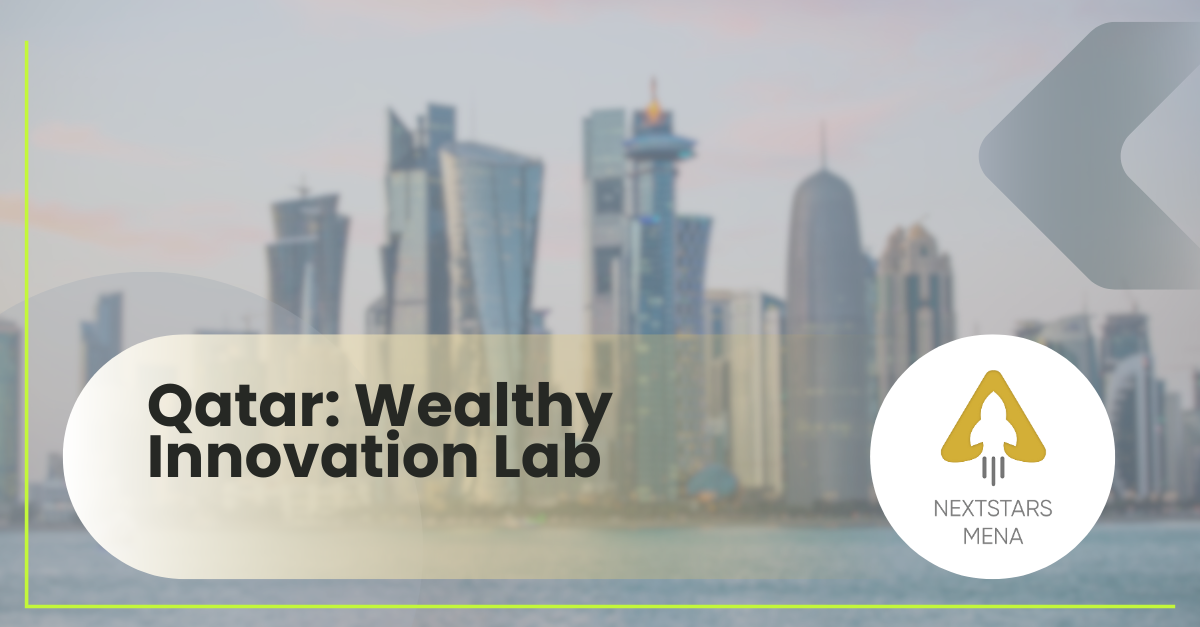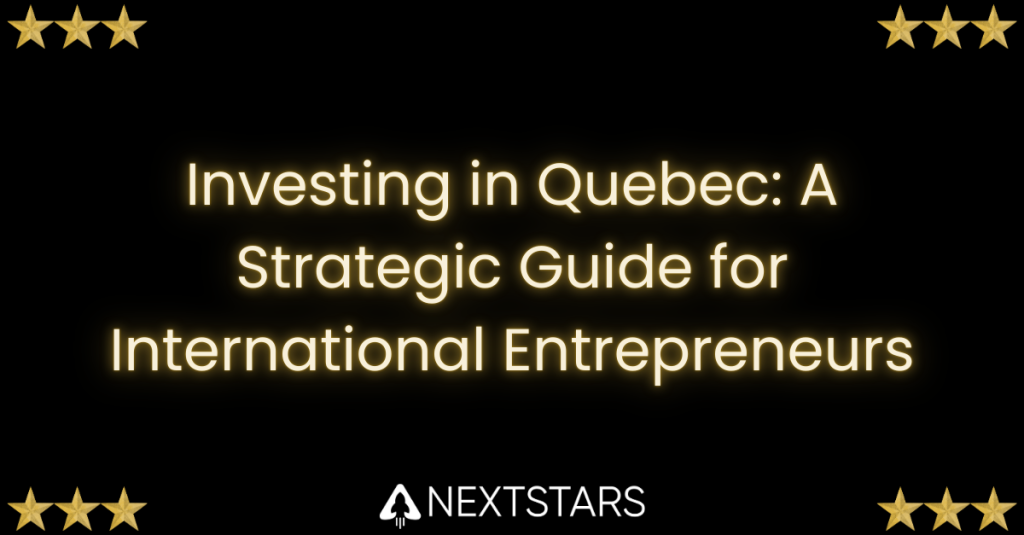Qatar’s startup ecosystem is undergoing profound transformation—ranking 73rd globally in the 2025 Global Startup Ecosystem Index with sustained growth momentum. Startups raised approximately $150 million in 2024, building on strong foundations from previous years, driven by breakthrough sectors like FinTech (35% of funding) and emerging deep tech innovation. With 99% internet penetration, strategic positioning as a gateway between East and West, and government initiatives like the National Development Strategy backed by billions in funding, Qatar offers exceptional potential for founders targeting GCC, MENA, and global markets. Qatar’s business-friendly regulatory environment, growing VC capacity (including the $1 billion Qatar Investment Authority tech fund), and emergence of success stories like Snoonu (reaching $35M+ valuation) and Meddy (acquired by Zocdoc) position it as an increasingly attractive destination for entrepreneurs building scalable technology businesses.
A Gateway Positioning: Qatar’s Strategic Advantages
Qatar occupies a unique position in the global startup landscape, leveraging its wealth, connectivity, and strategic location to build a world-class innovation ecosystem.
Geographic and Economic Access
With a population of 2.8+ million and 99% internet penetration (among the world’s highest), Qatar provides a sophisticated test market with exceptional purchasing power. The country’s strategic advantages offer unparalleled opportunities:
Global aviation hub: Qatar Airways connecting to 160+ destinations provides unmatched global connectivity
Regional headquarters: Natural base for companies targeting $3+ trillion GCC market
Asian gateway: Strong ties to India, Pakistan, and Southeast Asian markets through large expat communities
Energy transition leader: Positioning as clean energy and sustainability innovation hub
Economic and Infrastructure Advantages
Qatar’s economic fundamentals create unique opportunities:
- GDP per capita of $85,000+: Among world’s highest, enabling premium product testing
- World-class infrastructure: State-of-the-art telecommunications, transportation, and utilities
- Free zones: Qatar Financial Centre (QFC) and Qatar Science & Technology Park (QSTP) offering 100% foreign ownership
- 2030 National Vision: Comprehensive economic diversification strategy
Regulatory Excellence
Qatar offers progressive regulatory frameworks supporting innovation:
- QFC providing common law jurisdiction within civil law country
- Central Bank (QCB) actively licensing fintech companies through regulatory sandbox
- Data protection laws aligned with international standards (GDPR-compatible)
- IP protection through membership in international conventions
This combination of wealth, infrastructure, and regulatory sophistication positions Qatar as an ideal launchpad for startups targeting premium markets and regional expansion.
Government Support and Policy Infrastructure
Qatar’s government has demonstrated unprecedented commitment to economic diversification through technology and innovation, backed by sovereign wealth resources.
Qatar National Vision 2030
The comprehensive Qatar National Vision 2030 represents a fundamental economic transformation backed by billions in funding to:
- Transform Qatar into a knowledge-based economy
- Create 100,000+ jobs in technology and innovation sectors
- Establish Qatar as regional innovation hub
- Support international expansion of Qatari startups
Qatar Development Bank (QDB) Programs
The Qatar Development Bank has become the cornerstone of startup support:
- $500 million+ allocated for SME and startup financing
- Seed funding programs providing up to $500,000 equity-free grants
- Scale-up programs offering $1-5 million growth capital
- Tasdeer program supporting export-oriented startups
Qatar Investment Authority (QIA) Tech Fund
The sovereign wealth fund’s $1 billion venture capital initiative addresses critical gaps:
- Focus on Series A and beyond investments
- Co-investment with international VCs
- Strategic investments in global tech companies with Qatar expansion potential
- Support for Qatari startups’ international growth
Startup-Friendly Policies
Recent regulatory improvements include:
- 100% foreign ownership in most sectors (revolutionary for GCC)
- Digital banking licenses enabling fintech innovation
- 10-year residency permits for entrepreneurs and skilled workers
- Streamlined licensing through Invest Qatar single window
- Tax exemptions for tech companies in free zones
Infrastructure Development
Government-backed innovation infrastructure:
- Qatar Science & Technology Park (QSTP): Home to 50+ tech companies including Microsoft, Cisco, SAP
- Qatar Financial Centre: Fintech hub with regulatory sandbox
- Msheireb Downtown: Smart city district serving as urban innovation lab
- Education City: Partnership with 8 international universities creating talent pipeline
- Qatar Research Development and Innovation Council (QRDI): $600M+ annual research funding
The Funding Landscape: Quality Over Quantity
Strong Funding Performance
Qatar’s startup funding landscape demonstrates quality-focused growth, attracting sophisticated capital despite smaller absolute numbers.
Overall performance:
- $150 million raised across 35 deals (2024)
- Consistent year-over-year growth despite regional volatility
- Ranked 4th in GCC for startup funding (after UAE, Saudi, Kuwait)
- High-value deals reflecting market sophistication
Balanced Distribution
Unlike regional peers, Qatar shows healthier funding distribution:
- Top 5 startups account for 45% of capital (vs. 65-80% concentration elsewhere)
- Series A and B rounds becoming regular occurrences
- Seed funding actively deployed through multiple programs
- International investor participation increasing
Sector Breakdown
FinTech leads by volume and sophistication:
- 35% of total investment ($52.5M)
- Companies like Cwallet, Karty, PayTabs Qatar gaining traction
- QCB regulatory sandbox enabling innovation
- Islamic finance innovation creating global opportunities
E-commerce and Logistics strong performers:
- 28% of funding driven by last-mile delivery solutions
- Snoonu’s dominance in quick commerce
- Rafeeq expanding across services
- Infrastructure supporting e-commerce growth
DeepTech and Sustainability emerging:
- 20% of funding aligned with national priorities
- CleanTech startups addressing water, energy challenges
- AI/ML companies supported by QRDI funding
- Healthcare innovation through Sidra Medicine partnerships
Other growing sectors:
- SportsTech: Leveraging FIFA World Cup 2022 infrastructure
- EdTech: Serving diverse expatriate population
- PropTech: Smart city and construction innovation
- TravelTech: Building on tourism growth post-World Cup
Local vs. International Capital
Qatar demonstrates balanced capital sources:
- 55% from local sources including QDB, QIA funds, family offices
- 45% international capital from global VCs discovering Qatar
- Key local players: Qatar Development Bank, Scale7 Ventures, Iliad Partners, Siraj Fund
- Growing family office participation from wealthy Qatari families
International investors active in Qatar:
- Faith Capital (Turkey-based, $200M fund)
- Wamda Capital (MENA-focused)
- 500 Global (through MENA funds)
- Plug and Play (innovation platform partnership)
Notable Exits Building Confidence
Strategic exits validating the ecosystem:
- Meddy: Acquired by Zocdoc (US healthcare platform)
- Karty: Regional expansion and acquisition interest
- Multiple trade sales to regional corporates
- IPO pathway developing through QSE initiatives
Success Stories: Qatari Startups Making Impact
Snoonu: Qatar’s Super App
Founded in 2019 by Hamad Al Hajri, Snoonu has become Qatar’s most recognizable startup success story, evolving from food delivery to comprehensive lifestyle platform.
The model:
- Multi-vertical platform serving 500,000+ active users (20% of population)
- Services spanning food delivery, groceries, pharmacy, services, events
- 15-minute average delivery time setting regional benchmarks
- Operating 1,000+ delivery fleet with employed (not gig) drivers
Growth trajectory:
- Raised $35M+ across multiple rounds
- 10x growth during pandemic period
- Expanded to 8 service verticals
- EBITDA positive on core operations
- Exploring regional expansion to Kuwait, Bahrain
Key differentiators:
- Focus on customer experience over pure growth
- Living wage employment model for drivers
- Deep local market understanding
- Strategic merchant partnerships
Cwallet: Digital Payments Pioneer
Cwallet represents Qatar’s fintech ambitions, building comprehensive digital payment infrastructure for the market.
The offering:
- Digital wallet serving 200,000+ users
- QR payment acceptance at 5,000+ merchants
- International remittance to 50+ countries
- Bill payments, mobile top-ups, P2P transfers
Traction metrics:
- Processing $100M+ annually in transactions
- 30% month-over-month growth in active users
- Licensed by Qatar Central Bank
- Partnerships with all major banks in Qatar
Meddy: Healthcare Innovation Success
Before its acquisition by Zocdoc, Meddy built the region’s leading healthcare appointment platform.
The journey:
- Founded by Qatari entrepreneurs addressing local healthcare access
- Scaled to cover entire GCC before exit
- 500+ clinics and 2,000+ doctors on platform
- Successful exit to US tech giant validating regional innovation
Other Notable Startups
Droobi Health:
- Digital therapeutic platform for diabetes management
- Partnerships with Hamad Medical Corporation
- 50,000+ patients served
- Expanding across GCC
Rafeeq:
- Multi-service platform for home services
- 100+ service categories
- Operating in Qatar and expanding regionally
ArabsGiving:
- Crowdfunding platform for social causes
- $5M+ raised for various initiatives
- Model being replicated regionally
Challenges: Scaling Beyond Constraints
Market Size Limitations
Small domestic market:
- 2.8 million population limits B2C scale potential
- 300,000 Qatari nationals creating niche for local-focused services
- High purchasing power doesn’t fully compensate for size
- Regional expansion essential for venture-scale returns
Mitigation strategies:
- Build for GCC from day one ($2 trillion economy, 58M population)
- Leverage Qatar as premium test market before scaling
- Focus on B2B/B2G opportunities with larger ticket sizes
Talent Availability
Technical talent constraints:
- Limited local developer pool requiring international recruitment
- High salary expectations due to competition with oil/gas sector
- Visa restrictions improving but still creating friction
- Brain drain to Dubai/London for career opportunities
Solutions emerging:
- Education City producing 1,000+ STEM graduates annually
- 10-year residency permits improving talent retention
- Remote work acceptance post-COVID
- Government scholarships for Qataris in tech fields
Cultural Conservatism
Traditional business culture:
- Preference for established businesses over startups
- Relationship-based business environment
- Limited risk appetite among local investors
- Gender segregation affecting some business models
Positive shifts:
- Younger generation embracing entrepreneurship
- Female entrepreneurship growing (35% of startups)
- Government campaigns promoting innovation culture
- World Cup 2022 accelerating modernization
Regional Competition
Competing with regional hubs:
- Dubai’s ecosystem 10x larger and more mature
- Saudi Arabia’s massive investments in tech
- Talent and capital flight to larger markets
- Limited global visibility compared to neighbors
Qatar’s differentiation:
- Quality over quantity approach
- Niche excellence in specific sectors
- Government backing more concentrated than larger markets
- Ease of doing business advantages
The Support Ecosystem: Quality Infrastructure
Accelerators and Incubators
Qatar Business Incubation Center (QBIC):
- Flagship national incubator under QDB
- 500+ startups graduated since inception
- Mixed-sector support with tech focus
- $100,000 in funding and services per startup
- 85% survival rate after 3 years
Qatar SportsTech:
- Leveraging World Cup infrastructure
- Partnership with Aspire Zone
- 20+ SportsTech startups accelerated
- Access to world-class facilities
- Global partnerships with sports organizations
QSTP XLR8:
- Deep tech focused accelerator
- Partnerships with global tech giants (Microsoft, Cisco)
- $50,000 equity-free grants
- Access to research facilities
- 12-week intensive program
Bedaya Center:
- Social entrepreneurship focus
- Youth-oriented programs
- 100+ social enterprises supported
- Partnership with Qatar Foundation
International accelerators in Qatar:
Plug and Play Qatar:
- Opened 2023 in partnership with QDB
- Focus on FinTech, Health, Sports, Retail
- Two cohorts annually
- Access to global network of 35+ locations
Flat6Labs Doha:
- Part of MENA’s leading accelerator network
- $30,000 seed funding for 10% equity
- 4-month program
- 15 startups per cohort
University-Industry Collaboration
Qatar Foundation and Education City:
- 8 international university branches creating unique ecosystem
- Carnegie Mellon, Northwestern, Georgetown, HEC Paris among others
- 3,000+ STEM students enrolled
- Research commercialization through QSTP
- $100M+ annual research funding
Hamad Bin Khalifa University (HBKU):
- Innovation Center supporting student entrepreneurs
- Graduate programs in cybersecurity, data science, sustainable energy
- Partnership with Qatar Computing Research Institute
- Incubation programs for faculty/student startups
Qatar University:
- Center for Entrepreneurship
- Business plan competitions with $500,000+ in prizes
- Industry mentorship programs
- 1,000+ students in entrepreneurship courses annually
Support Organizations
Digital Incubation Center (DIC):
- Ministry of Communications initiative
- Focus on Qatari youth in tech
- 100+ startups in portfolio
- Mentorship from Google, Microsoft, Meta
- Free co-working space and resources
Roudha Center:
- Female entrepreneurship focus
- 500+ women entrepreneurs supported
- Business training and mentorship
- Access to funding programs
- Childcare support for working mothers
Qatar FinTech Hub:
- Dedicated fintech ecosystem builder
- Regulatory sandbox access
- Partnerships with Visa, Mastercard, banks
- 30+ fintech startups in community
- Demo days with regional investors
Looking Ahead: Premium Innovation Hub
Critical Momentum Building
Qatar’s startup ecosystem stands at an inflection point in 2025:
Positive momentum:
- Consistent funding growth ($150M+ annually)
- Successful exits (Meddy acquisition)
- Government commitment (billions in funding)
- World Cup legacy infrastructure
- Regional instability driving talent to stability
Structural advantages:
- Highest GDP per capita globally
- 99% internet penetration
- Government backing unmatched regionally
- Premium test market for global products
- Crossroads location between East and West
What Success Looks Like by 2030
Quantitative targets:
- $500M+ annual startup funding (3x current levels)
- 5+ Series B rounds annually of $20M+
- 10+ strategic exits to global companies
- 2,000+ startups (from current 500)
- 50,000 direct jobs in tech sector
- 2 unicorns or near-unicorns
Qualitative indicators:
- Global VCs maintaining Doha offices
- Qatari startups IPO-ing internationally
- Tech exports reaching $1B+ annually
- Regional headquarters for global tech companies
- 40%+ female founder participation
- Qatarization of tech leadership roles
Strategic Priorities
For government:
- Scale venture capital: Deploy QIA’s $1B fund strategically
- Talent development: Fast-track 10,000 developers through intensive programs
- Regional integration: Position Qatar as GCC’s innovation gateway
- Regulatory leadership: Become region’s most crypto/Web3 friendly jurisdiction
- Global partnerships: Attract Silicon Valley accelerators and VCs
For investors:
- Larger funds: $100M+ funds emerging for growth capital
- Specialized expertise: Sector-focused funds in fintech, sustainability
- Regional collaboration: Co-investment with Saudi, UAE funds
- Patient capital: Understanding 7-10 year horizons
For corporates:
- Innovation mandates: Qatar Petroleum, Qatar Airways creating venture arms
- Startup procurement: Government/corporate contracts for startups
- Strategic acquisitions: Building through M&A not just partnerships
For founders:
- Think globally: Use Qatar as launchpad for international expansion
- Solve hard problems: Energy transition, water security, financial inclusion
- Leverage advantages: Use Qatar’s purchasing power for premium products
- Build bridges: Connect Asian, Western, and Arab markets
The Path Forward
Qatar has built world-class infrastructure for innovation: sovereign backing, regulatory excellence, global connectivity, university partnerships, and premium market access. The next phase requires:
Depth over breadth: Fewer but higher-quality startups
Global over regional: International ambitions from inception
Sustainability focus: Aligning with national transformation priorities
Talent magnetism: Attracting global talent with quality of life
Strategic patience: Building enduring companies over quick exits
Qatar’s unique advantages—sovereign resources, global connectivity, regulatory sophistication, premium market, strategic location—position it to become the GCC’s quality-focused innovation hub if talent and scale challenges can be addressed.
For ambitious founders and international investors, the opportunity is clear: Qatar offers unmatched government support, sophisticated infrastructure, and strategic positioning to build companies serving global markets. The startups that execute well over the next 3-5 years will define whether Qatar emerges as the “Singapore of the Middle East” or remains a well-funded but subscale ecosystem.
The key differentiator: solving civilization-scale challenges—sustainable energy, water security, financial inclusion, healthcare access, education—rather than replicating Western consumer apps. This focus positions Qatari startups for global relevance and impact beyond pure financial returns.
Qatar’s combination of resources, ambition, infrastructure, and strategic positioning makes it one of the most intriguing emerging tech ecosystems globally heading into 2025 and beyond.
Read our blog about Morocco here.





